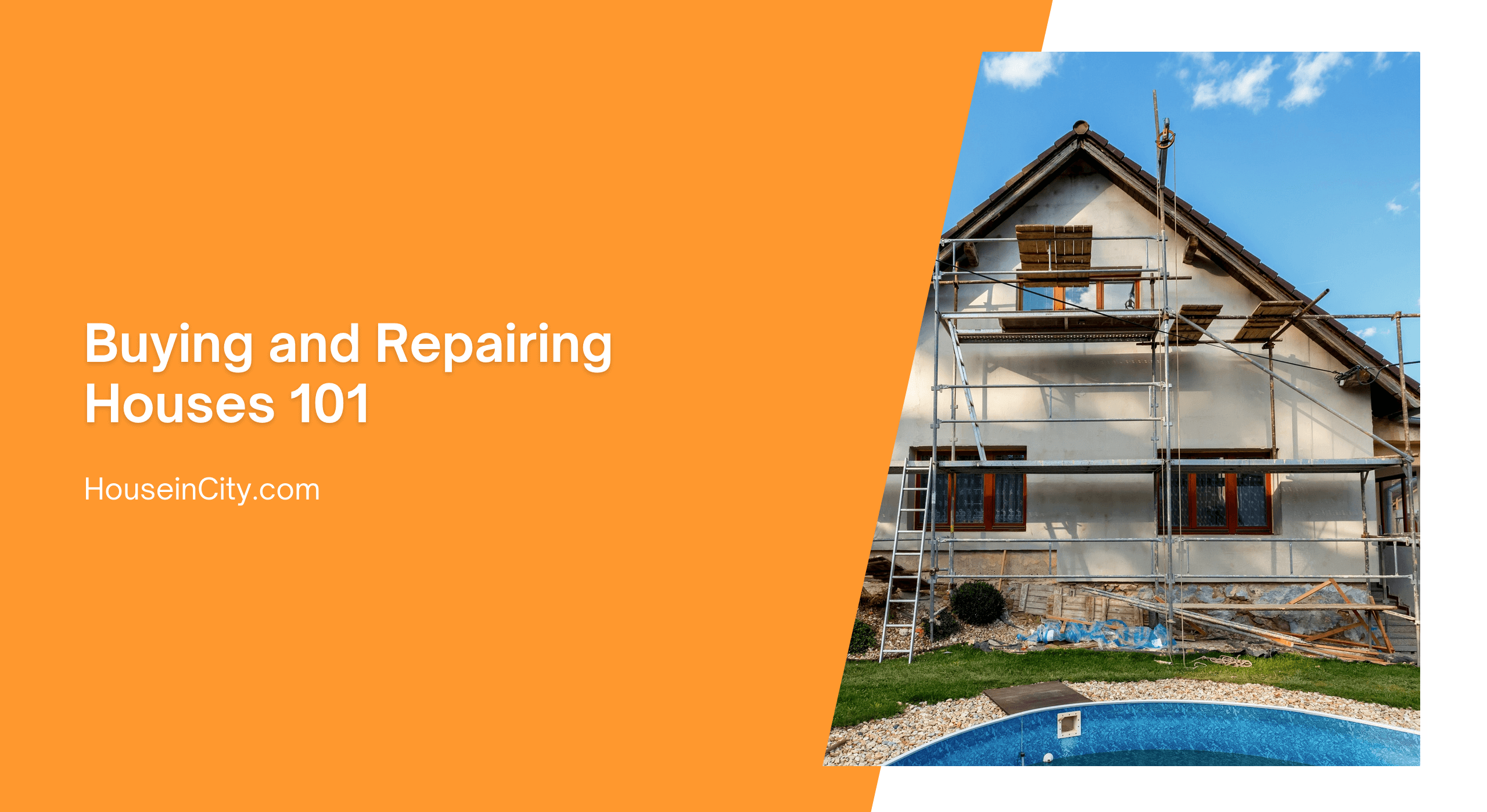If you want to invest in houses, a great route is buying houses that need fixing up. Please note, however, that you want to buy houses with primarily cosmetic problems, not structural or serious ones. It’s those cosmetic problems, like paint, carpet, etc., which can be easily and cheaply fixed, but make a big difference in terms of what buyers are willing to pay. The object is to buy something that looks bad, but is really good, that way you can fix it up inexpensively and sell it at a profit. Do not buy something that has serious problems or you’ll wind up at a loss trying to fix it.
Buying run down houses and fixing them up is the ideal investment method for those who consider themselves handymen. Handymen can easily look at a house and tell how difficult it will be to repair. They can also save lots of money doing the repairs themselves instead of hiring someone. If you’re not a handyman, then you’ll need to hire someone, which needs to be done carefully. First, you’ll want to make sure the contractor is qualified to do the work, and then secondly, you’ll want to make sure you can get the work done at a good price. There is no shortage of companies who are willing to charge a fortune on repairs. If you use such companies, you can kiss your profits good bye.
A good way to avoid investing in houses with serious structural issues is to consult a qualified, reputable contractor before hand. The contractor will look through the house and tell you what the problems are and how much it will cost to fix them. If you do this with several contractors, you’ll have a pretty accurate and reliable idea of what’s wrong with the house. If it’s nothing serious, then buying the house for repair and resale may make sense. On the other hand, if the numbers you’re getting are huge, and the problems are serious, it may be time to look for another deal. After doing this several times, you’ll get a good idea about who are the good contractors and form relationships with your favorites. This will make the process go much smoother as time goes on. When you first start out looking for houses to repair and sell at a profit, you’ll of course want to start very small. Since you don’t know what you’re doing, you’ll probably make mistakes. The larger the home, the bigger your mistake will cost in dollars. Once you get your system down to a science on small houses, you can then scale up to larger houses. The beauty of real estate is that if you can do it on smaller homes, doing it on larger homes is not a big adjustment. Think of the small, or tiny, homes as your method of training, and then the bigger homes as where you’ll make the serious profits later on.
Remember that, like anything else, being a real estate investor is not something that you can learn overnight. To become really good takes time and effort. Don’t expect to become a millionaire overnight. It’ll take a few years to really learn what you’re doing, but after you reach that point, the rewards are well worth it.
